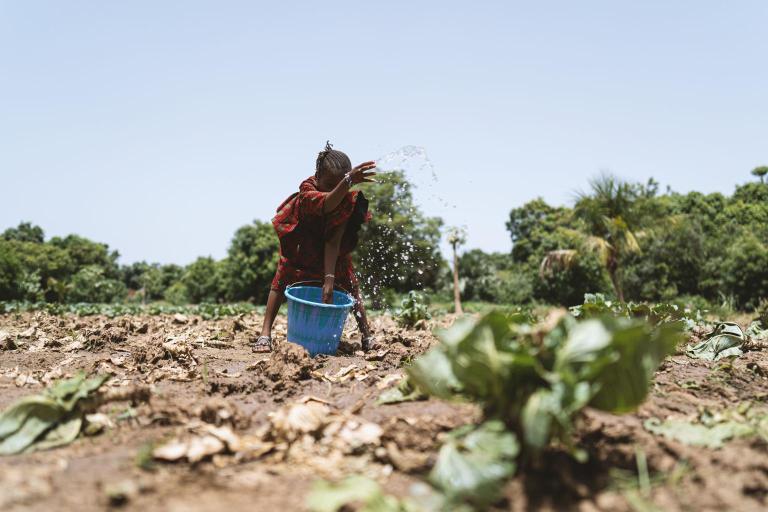
Region I: Africa

Africa's socio-economic landscape is diverse, marked by varying levels of development, economic activities, and social challenges, including extreme poverty rates, inequality, limited healthcare and education access, and political instability in some regions, and rapid urbanization, with potential for growth and innovation. Of significance, as of 2022, the United Nations designated 34 of the 46 globally recognized Least Developed Countries (LDCs) as located within the African continent.
The WMO Regional Office for Africa, headquartered in Addis Ababa, Ethiopia, works with National Meteorological and Hydrological Services (NMHSs) across 53 Members in the region, to strengthen data exchange, operational capacities in monitoring and forecasting and to develop early warnings systems. as well as regional institutions and development partners.
Collaboration between the WMO Regional Office for Africa and regional institutions, development partners, key stakeholders including ECA, AICCRA, AfDB, AU, and various United Nations agencies, is essential for resource mobilization, knowledge enhancement, and expertise exchange. The WMO Regional Office for Africa recognizes the vital role played by NMHSs in safeguarding populations and enhancing socio-economic resilience to climate-related challenges. Through the reinforcement of climate service value chains, we are committed to enhancing early warning systems and facilitating the sustainable development of African communities. To ensure comprehensive coverage, our Regional Office maintains two Representative Offices: one situated in Abuja, Nigeria, serving 27 countries in North, Central, and West Africa, and the other located in Nairobi, Kenya, catering to the Eastern and Southern African region, encompassing 26 countries.
Projects in the region
WMO Offices in the region
WMO Regional Office for Africa (RAF)
Lideta Sub City
Yared Street
Addis Ababa, Ethiopia
New building (under construction):
Bole
Addis Ababa, Ethiopia
Email: addis@wmo.int
WMO Representative Office for Eastern and Southern Africa (ESA)
United Nations Complex, Gigiri
Block P, Level 3, UN Avenue
PO Box 1395-00606
Nairobi, Kenya
WMO Office in the Region for North, Central and West Africa (NCWA)
WING C, United Nations House
Plot 617/618 Diplomatic Drive
Central Area District PMB 2851
Garki
Abuja, Nigeria

